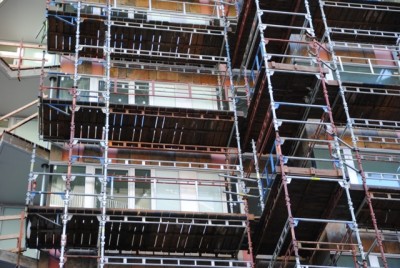The exploitation of foreign workers in Norway who are willing to work for less pay than Norwegians is becoming more widespread and more serious, according to employment lawyers. On the eve of Labour Day, a day of working class rallies over political and labour issues in the country, employment law expert Rune Berg said many vulnerable immigrants’ working conditions are akin to “modern slavery.”

Berg has worked in employment law for 35 years, focusing on social dumping and exploitation of foreign workers for the last 15. He told newspaper Dagsavisen this week that many industries lack a minimum wage for foreign workers and pay no overtime or allowances, immigrants often sign sham contracts that the employer never intended to fulfill, wage and working conditions can be confusing, and many workers live in cramped, overcrowded housing provided by their employer. If they complain, the desperate and vulnerable workers risk losing their jobs, income and dwelling.
“The number of cases has risen dramatically since I started working in this field 15 years ago,” said Berg. “At most we get 30 to 40 inquiries a week from foreign workers exploited on the most serious level. Some are extremely poorly paid, others are not paid at all. Ten to 12 hour days and fictitious contracts are not uncommon. Many work in conditions that are modern slavery.”

The trade union confederation, LO, wrote to Conservative (Høyre) Prime Minister Erna Solberg and six other ministers earlier in April to warn about new threats to the workplace. It pointed to the fishing and transport industry where social dumping had spread rapidly, and wrote there was an growing trend that “Norwegian working life is increasingly linked to serious economic crime, tax evasion, violent crime, traffickers and mafia-like conditions.”
“If you are caught, there are virtually no consequences,” said Berg. “Even in the cases where the Norwegian Labour Inspection Authority (Arbeidstilsynet) uncovers serious improprieties, it cannot give fines or other sanctions.” He said many avoid claims by declaring themselves bankrupt, then starting new, equally unscrupulous companies.
One in three have unregulated working hours
Berg’s claims were backed by labour and social research institute Fafo. It released a report in January showing that the number of offenses in the entertainment industry was particularly high, while there were serious deficiencies in contracts, working hours and overtime. Almost one in three workers said they did not have a contract regulating working hours, while employers admitted that undeclared work and tax (MVA, or moms) evasion were rife.
“The volume of labor immigration to Norway has been far higher than anyone imagined when the European Union was enlarged by 10 new member states in 2004,” said senior Fafo researcher Jon Erik Dølvik. “Secondly, foreign companies are coming to Norway and working on tenders to a much greater extent than we predicted. Overall, this has made it possible for Norwegian companies to hire cheap labor on a completely different scale than before.”
He told Dagsavisen that wage dumping was particularly prevalent in the construction, shipbuilding, transport, cleaning, fisheries and food and beverage industries. Awarding tenders to the cheapest company came at the expense of vocational training and apprenticeships run by the more reputable, established companies.
In the week where Norwegians mark Labour Day, Berg called for the Minister of Labour and Social Affairs, the Progress Party’s (Fremskrittspartiet, FrP) Robert Eriksson to improve working conditions for immigrants. “He must pay attention to these problems to a much greater extent than he has been doing up until now, and seek advice both from unions and others to make the necessary legal changes and ensure better sanctions,” said Berg.
newsinenglish.no/Emily Woodgate

